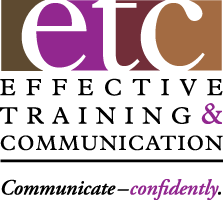Ask any group of business professionals what they think about meetings at work. You’ll probably hear comments like “ … too long … unorganized … #$%&*(@# waste of time … always start late … no action … I hate meetings.”
Poorly planed meetings translate into inefficient and ineffective results and missed opportunities. Too many business people still haven’t learned how to plan, manage or follow up on meetings; they simply “have” meetings … or, even worse, they “do” a meeting.
As leaders, meetings are part of your work life. And just as work without meetings would be unthinkable – wonderful, but unthinkable – work loaded with terrible meetings is unbearable.
A meeting is nothing more than a communication tool. Not a perfect tool at all, but one with specific advantages and disadvantages for potentially solving a communication problem or need. A meeting can also be an opportunity for you to display leadership and management skills. But, it can be an opportunity to fail, too. The difference depends on how skilled a workplace communicator you are and how well you make meetings work for you.
Planning Is Everything – The Pre-Meeting Phase
We all know that failing to plan is planning to fail with our businesses. Same goes for meetings. So, ask these questions when you plan your next meeting:
- Objective – What problem are you trying to solve? What’s your specific objective? What outcomes do you want to accomplish as a result of the meeting?
- Participants – Who needs to attend? Who is necessary to contribute, decide and implement as needed? If people are not helping to achieve the outcomes, why are they there?
- Agenda – Does your agenda include attendees, location, start and end times, topics to be discussed, time allotted for each one and specific assignments? If not, fix it. If you don’t have a good agenda, don’t meet.
- Alternatives – Is there a more effective and efficient way to accomplish your objective than having a meeting? Would a note, conference call, video teleconference or series of one-on-one conversations be smarter than a meeting for this particular situation? A meeting should be the best tool you can think of using, not the first one you think of or the one you usually think of. Remember, the only thing worse than a bad meeting is a good meeting that should have been an email or conference call instead.
- Location – Where’s the most convenient, practical and productive location for your meeting? The wrong location can impact meeting dynamics and results.
- Timing – what day and time are the least disruptive and most productive for your meeting? Your objectives, attendees and group dynamics will influence timing. When in doubt, ask the group for input.
- Frequency – if you need to meet regularly, how often makes sense? If you changed your weekly staff meeting to every other week with e-mail updates in between, you cut the organization’s yearly “cost” for that meeting in half and increase the real productivity of attendees.
The quality of the meetings you conduct is a reflection of your ability as a workplace communicator and leader. So, start improving your meetings tomorrow with more and better planning. You absolutely can make meetings work for you.
